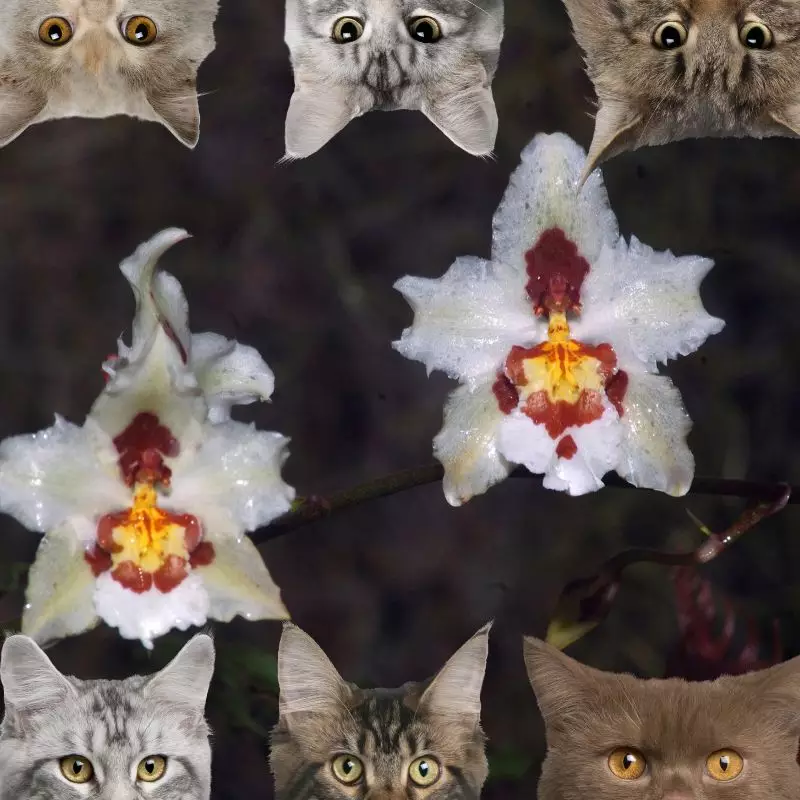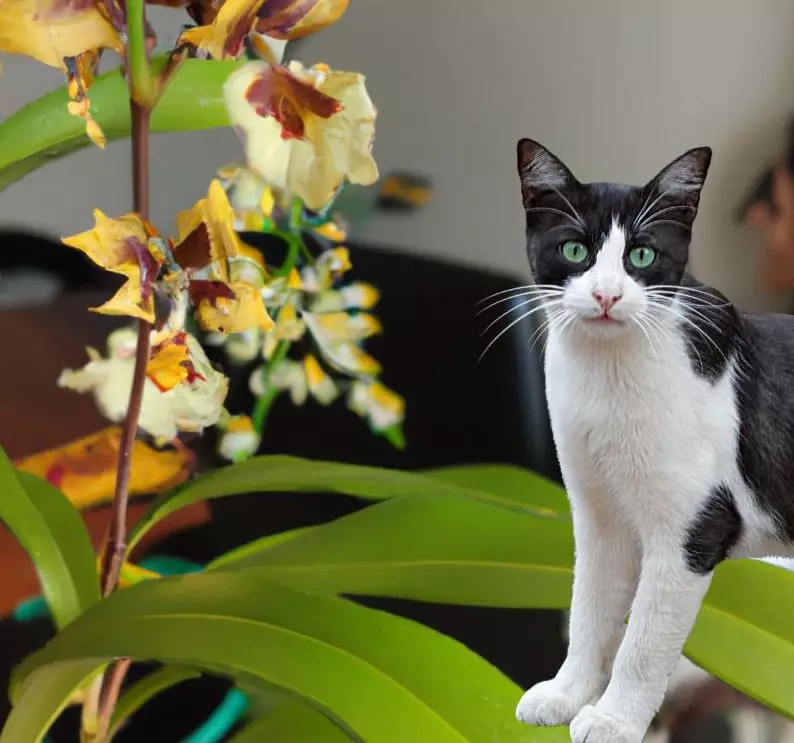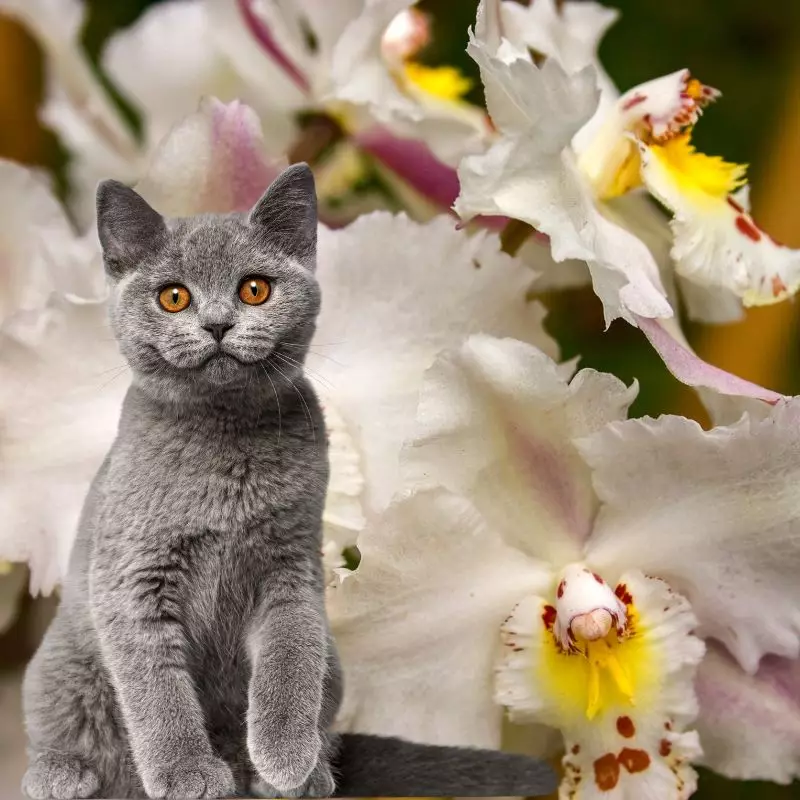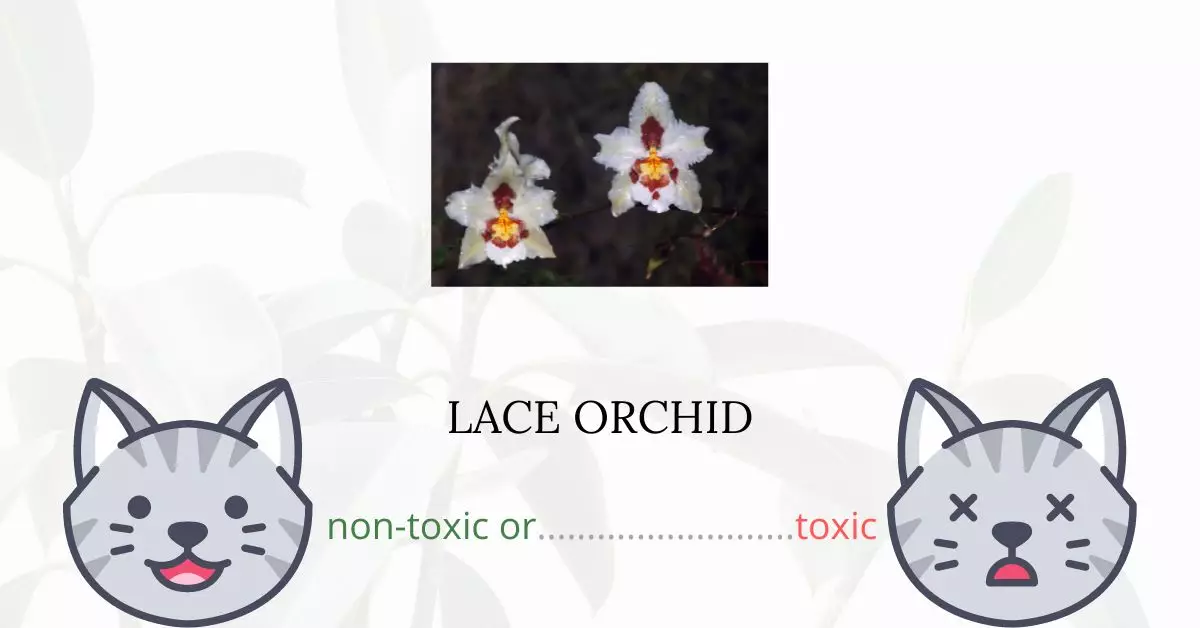No, Lace Orchids are not toxic for cats. Orchids, especially those from the Orchidaceae family, are among the safer houseplants to have, even if your feline friend gets curious enough to nibble on them.
This article has been meticulously written in collaboration with a team of experienced DVMs (doctors of veterinary medicine). Through their valuable insights, we provide accurate and up-to-date information on the potential risks associated with various plants, particularly Lace Orchids, and their effects on cats. Our research has been further substantiated by high-authority sources such as the ASPCA and PetMD to ensure the utmost reliability of our content.
Can Cats Eat Lace Orchid?

Yes, cats can eat lace orchids. The ASPCA reminds us that while eating orchids could give your curious cat stomach discomfort and possibly result in vomiting similar to what happens when the grass is swallowed, orchids are not poisonous to cats. Remember that your cat could be harmed by pesticides and fertilizers, so only use ones you are certain are safe.
Unfortunately, most orchids require fertilizers in order to grow and maintain good health. This is a problem because orchids are stunning plants.
If your cat consumes them or comes into contact with them, fertilizers can be hazardous. This maybe clarifies a lot of the misconceptions over the suggestion that orchids are harmful. What’s beneath the blossom—not the flower itself—is what matters.
What is Lace Orchid?

Lace orchid (Odontoglossum crispum), often known as the curled odontoglossum, is an epiphytic orchid from the genus Odontoglossum. Although it is one of the most challenging orchids to grow, many people believe it to be the most beautiful of all.
It can be found in Colombia’s mountainous forests. In openings and near the borders of forests, the plants develop as epiphytes. Pure white to flush pink are just a few of the forms, colors, and tints that they come in. They primarily grow on the trunks and major branches of oak trees in moderate shade and occasionally full sun.
Keeping Cats Away From Lace Orchid

Create a plant or orchid paradise in your home where you may keep all of your cherished plants. This may be your sunroom or any other room in the house that receives a lot of daylight during the day. If there is a door in this room, make sure it is closed at all times to keep your cat from causing trouble.
Try using hooks and hanging pots. In addition to being cat-proof, orchids are 10 times more beautiful from this perspective.
Sprinkle cayenne or cinnamon powder on the foliage of orchid plants. Your cat won’t bother your priceless orchid plant since she detests the smell.
Plants to Avoid For Your Cats
If you are a cat owner and unsure if the plants growing in your yard are harmful to your cats, check out this list of toxic plants for cats. You can also check our list of non-toxic plants for cats.





